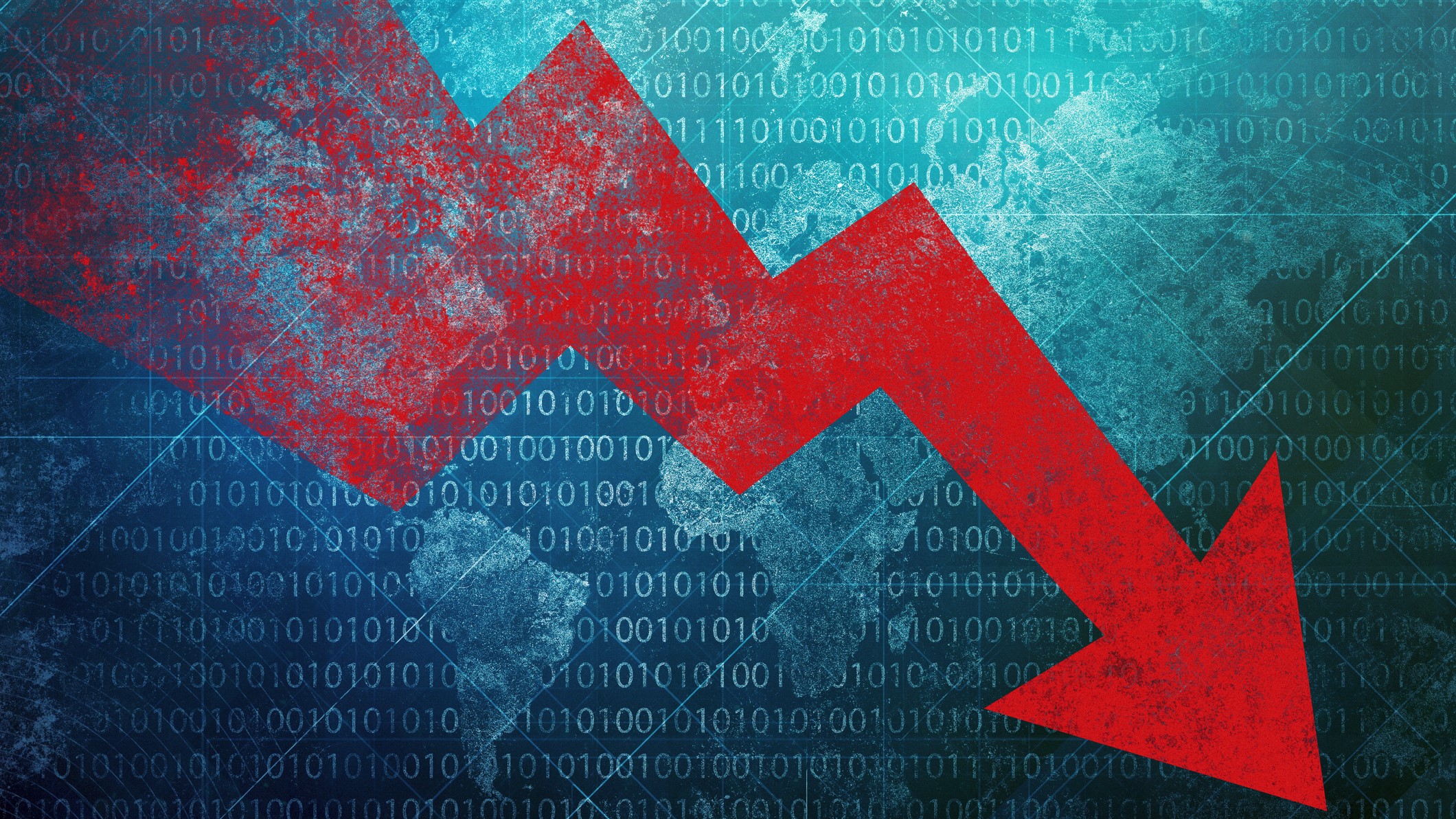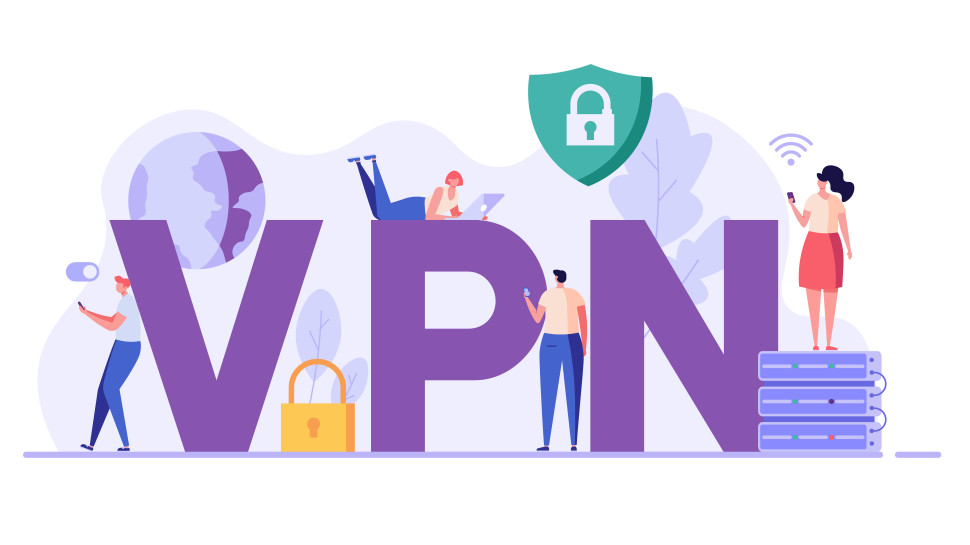2023 has been a challenging year for internet freedoms, here's why
Internet shutdowns, censorship, and data privacy pitfalls

Sign up for breaking news, reviews, opinion, top tech deals, and more.
You are now subscribed
Your newsletter sign-up was successful
Internet shutdowns, social media blocks, online censorship, and alleged misuse of data: 2023 certainly was a challenging year when it came to digital freedoms.
The use of security software like VPN services reflects this trend. Throughout the year, providers saw spikes in downloads during periods of political turmoil— and, for the first time in some instances, these occurred before restrictions were enforced as a preventive measure. According to Statista, the main reason for using a VPN worldwide in 2023 was privacy, followed by anonymous browsing, and secure communications.
As we welcome in the new year, let's look back at the past 12 months to reflect on what happened and what's likely to be in store for 2024. Luckily, better data safety seems to be on the agenda as well—at least across democracies.
Internet freedoms keep shrinking
"In the past four years, we've seen a relatively consistent number of governments restricting access to the internet despite its well-documented financial and human rights costs," Samuel Woodhams, researcher at Top10VPN, told me.
Since 2019, Woodhams and his team have been mapping the economic impact caused by full or partial internet shutdowns. We previously reported the record $10 billion loss linked with internet disruptions registered seven months into 2022. Last year might not have been as bad, but researchers still recorded losses of over $9 billion for a total of 79,238 hours of government-imposed internet or social media blackouts.
Iran is the most prolific perpetrator of these blackouts. However, Russia and Ethiopia surpassed Tehran in terms of economic losses, with $4.02 and $1.59 billion respectively against $920.3 million. Elsewhere, people in Manipur, India were disconnected for a total of 5,000 hours, the equivalent of over 208 days.

Short for virtual private network, a VPN is security software that encrypts internet connections and spoofs users' IP addresses. The latter function is exactly what helps people living under online restrictions access the open internet. Unfortunately, even VPNs cannot help in times of total internet blackout.
X (formerly known as Twitter) was the most blocked social media platform. Governments pulled the plug on the popular app 18% times more than Instagram and 26% more than TikTok, an action that VPN service Surfshark described as "a suppression of an essential avenue for transparency."
The most common reasons behind shutdowns were, in order, exams, protests, information control, conflict, military coups, and election interference. Yet, the motivation that cost the economy the most was conflict, followed by protests.
The price to pay was even higher in terms of human rights—considering that 50% of government internet outages were also associated with human rights abuses in 2023, mostly limited freedom of assembly, according to Top10VPN.
There were also instances where internet disruptions came as a consequence of other events, like extreme weather and war. Gaza's internet connectivity has been disappearing since the start of the conflict, in fact, following a breakdown in the electricity supply and damaged internet infrastructure as a result of the bombing.
Reflecting on how this trend might evolve in 2024, Woodhams said: "Unfortunately, we're unlikely to see the end of internet shutdowns any time soon and with several key elections scheduled for next year, the number of governments restricting access to the internet may actually increase in 2024."
Internet censorship wasn't enforced solely by shutting down online platforms; online content was increasingly targeted, too. Surfshark recorded a spike in Google content removal requests since 2013, for example, with Russia being on the lead.
This isn't totally surprising. Russia even harvested the power of AI to beef up its censorship game this year. In terms of VPN censorship, the Kremlin was pretty active as well, alongside China and Iran, with more VPN services expected to be banned starting from March 1, 2024.
Some prominent cases of data privacy pitfalls also made headlines across the Western world. Most notably, ChatGPT allegedly used personal data without consent. That's something that cost the popular generative AI app almost a month-long ban in Italy.
Meta also faced increased scrutiny for potential GDPR violations in Europe. First, its new platform Threads was criticized for collecting more sensitive information than necessary. Then, the company proposed an EU ad-free subscription, only to be accused of making privacy an exclusive right "for the rich."
Being tracked for personalized advertising by Meta– or pay up to €251.88 a year to retain the fundamental right to data protection - noyb files new GDPR complaint against Meta over “Pay or Okay” https://t.co/0prQpd5J0BNovember 28, 2023
On this point, Agneska Sablovskaja, Lead Researcher at Surfshark, said: "Challenges posed by Meta's Threads and the 'Pay or Okay' initiative necessitate a reevaluation of existing digital strategies."
According to Sablovskaja, once again 2023 underscores the need for a sophisticated approach to dominant technologies. She said: "Our commitment endures in cultivating an ethical digital landscape that prioritizes user privacy and responsible tech use—an innovation that respects everyone's non-negotiable right to privacy."
Hopes for data safety
A glimpse of hope also marked the 2023 data security landscape. As Surfshark reported, democracies lead the way towards more secure digital lives, with half of these nations boosting data protection levels higher than the global average. The US might lack a federal data protection law—the ADPPA is still stalled at the time of writing—but Colorado and Virginia finally enforced privacy laws.
The race for a comprehensive AI Act has been fierce, too. The UK AI Summit ended with a world-first signed agreement among the UK, the US, China, and 25 more countries to develop safe and responsible AI software. Despite ongoing controversies, the EU also managed to agree on the backbone of what is likely to become the go-to model for the West. We still need to wait for the final text, though.
With several key elections scheduled for next year, the number of governments restricting access to the internet may actually increase in 2024
Samuel Woodhams, researcher at Top10VPN
Similarly to policymakers, security software providers have been actively reacting to new digital threats.
Most notably, NordVPN launched NordLabs as a space to test new ideas and approaches to ever-changing online security and privacy issues. Proton launched its VPN Observatory to publicly map online censorship around the world through VPN trends. A new free-to-use service was also launched: Snowstorm is a decentralized and open-source proxy network able to provide a gateway to the open internet.
Woodhams feels positive considering these innovations in the market. He said: "Despite the continuation of internet shutdowns, we have witnessed a number of new apps and strategies designed to keep people online in 2023 and expect this to continue into the new year. Combined with legal and political challenges, we hope this can limit their impact going forward."
Sign up for breaking news, reviews, opinion, top tech deals, and more.

Chiara is a multimedia journalist committed to covering stories to help promote the rights and denounce the abuses of the digital side of life – wherever cybersecurity, markets, and politics tangle up. She believes an open, uncensored, and private internet is a basic human need and wants to use her knowledge of VPNs to help readers take back control. She writes news, interviews, and analysis on data privacy, online censorship, digital rights, tech policies, and security software, with a special focus on VPNs, for TechRadar and TechRadar Pro. Got a story, tip-off, or something tech-interesting to say? Reach out to chiara.castro@futurenet.com